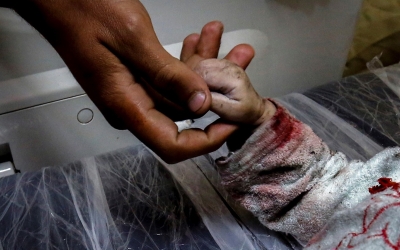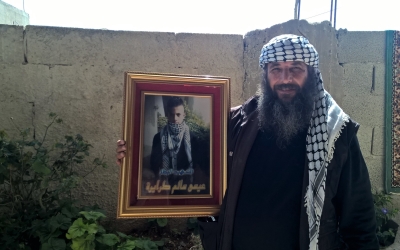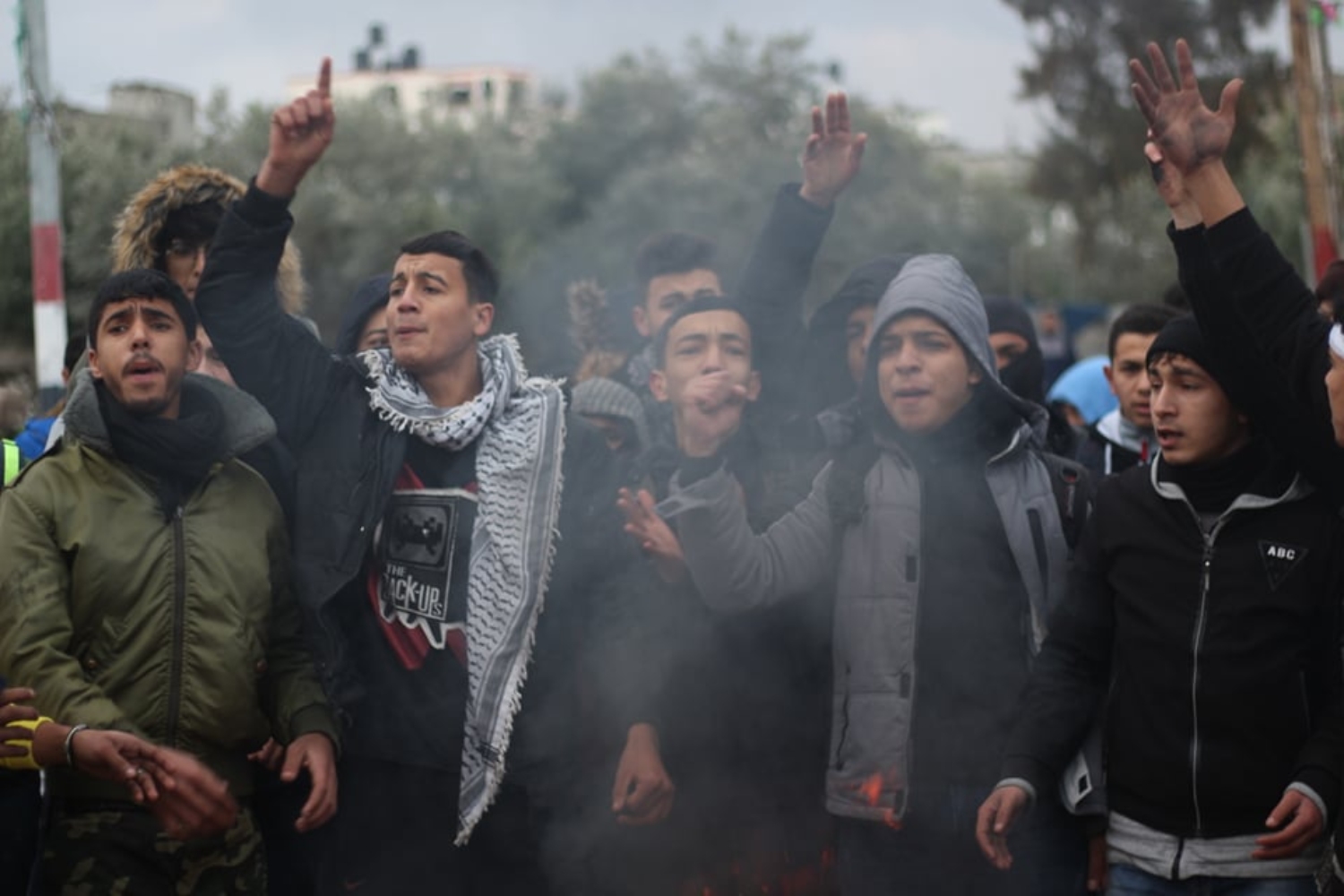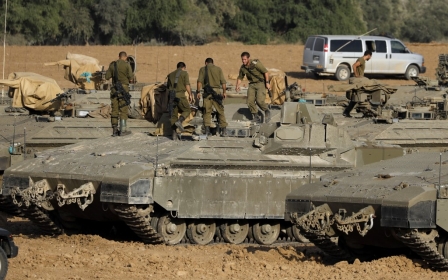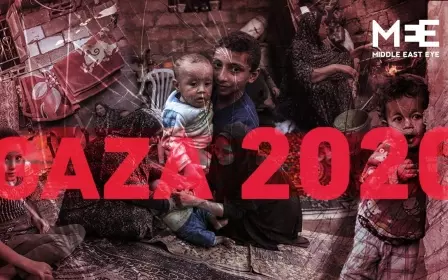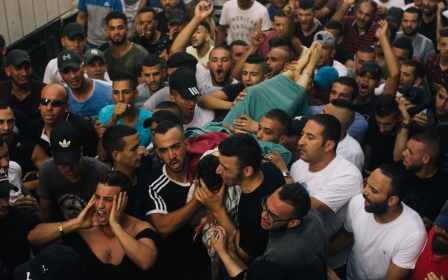Families in disbelief after Israeli army kills three Gaza teens
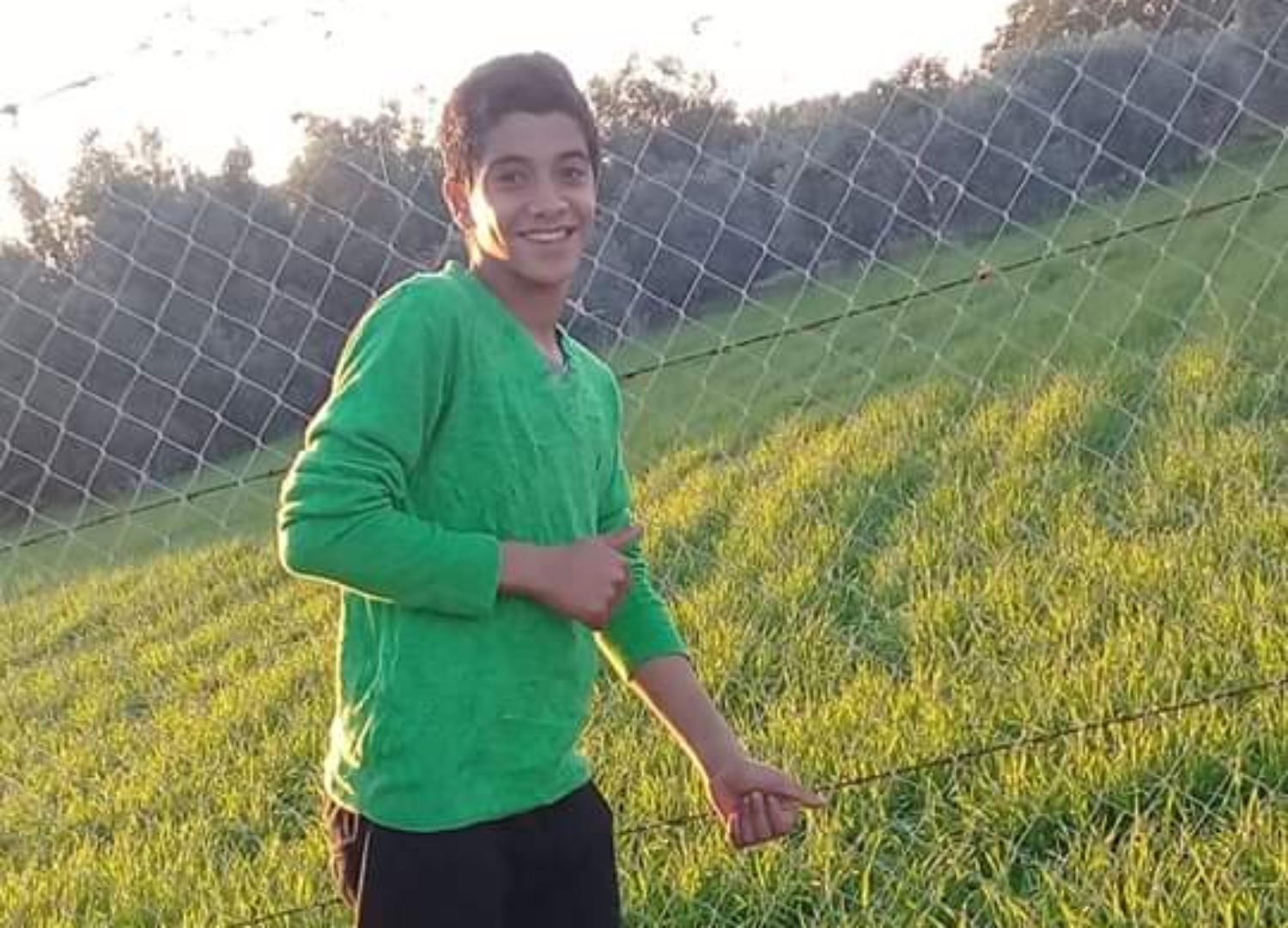
On Tuesday afternoon, just before maghrib - the fourth daily Muslim call to prayer - Mohammed Abu Mandel, Salem al-Naami and Mahmoud Saed decided to take a break from their studies and spend some time on family farmland in the northern besieged Gaza Strip.
The plan, family and friends told Middle East Eye, was to light a bonfire and relax ahead of the high-pressure tawjihi exams that would mark the end of high school in a few months' time.
New MEE newsletter: Jerusalem Dispatch
Sign up to get the latest insights and analysis on Israel-Palestine, alongside Turkey Unpacked and other MEE newsletters
But the three 17-year-olds never came home.
That evening, Israeli forces shot and killed the three boys, alleging that they had crossed the separation barrier between the blockaded Palestinian enclave and Israel in an attempt to carry out an attack.
The teenagers’ families have vehemently rejected the accusations, as they seek to understand what happened to their sons, whose bodies Israel is now withholding.
Family disbelief
According to a friend of the slain teenagers, who asked not to be named, Mohammed, Salem and Mahmoud gathered in the square of the village of al-Zawayda on Tuesday afternoon after a long day at school.
“It was about an hour before sunset, and they decided to go to some farmland owned by Salem’s family,” the friend told MEE. “They just wanted a break from hard studying.”
The Naami family’s land is located some 200 metres from the fence that separates Gaza from Israel east of the Maghazi refugee camp. While the area is often monitored by Israeli forces - which enforce a ‘buffer zone’ hundreds of metres into the Palestinian territory - the teenagers regularly came to the area to relax around a bonfire, the friend said.
“I had plans at home, so I didn’t go with them,” he recalled. “I was busy and forgot about them, until later that night when I heard the news. I called their families to find out what happened, but none of them had returned home.”
At around 11 pm that night, a relative called Mohammed’s father, Hani Abu Mandel, asking in veiled terms if he knew where his son was after reading news about young Palestinians being killed by Israeli forces.
Hani said Mohammed was out with his friends, but began to worry. He tried to call his son’s phone, only to get no response.
An Israeli army statement said the three teenagers had crossed some 400 metres into Israel and were hiding in a thicket when a military jeep approached them. The army said that the young men threw two objects believed to be explosives at the jeep, prompting soldiers to open fire, killing them all.
But Mohammed’s father refused to believe the army’s version of events.
“The closest he ever got to resisting [against Israel] was by attending the Great March of Return protests a few times,” Hani said of his son. “He never held a gun, he didn’t participate in any military groups and I’m sure he didn’t know how to make a grenade.
“If the boys crossed the border, I bet they did it for entertainment only and were unaware of what the consequences could be. The Israelis are lying.”
‘Israeli killed him and his dream’
The news of the three teenagers’ deaths has hit their families hard.
“Mohammed was a very quiet boy who wanted to study agricultural engineering at university next year so he could look after the lands we own,” Hani said. “But now Israel killed him and his dream.”
Mohammed’s younger brother, 16-year-old Hamza, vowed to take up his brother’s academic goals as his own.
Salem’s father, Zuweid al-Naami, said that he felt lost. The Naami family lives in a Bedouin village and Salem, the eldest of six children, used to help him herd sheep.
“Salem helped our neighbours, those who are very poor. He brought them some food from our land,” Zuweid told MEE. “He had a very kind heart.”
He denied that his son would have carried out an attack.
“My son never participated in any military activities,” Zuweid said. “If he crossed through the fence, why couldn’t have Israel warned him to go back instead of killing him? This is Israel’s way.
“We don’t even know for sure if my son is dead,” he added. “All we know is that Israel published their ID photos and names. We don’t have their bodies.”
The family of Mahmoud, the third boy killed, remained in a state of shock, telling MEE they refused to accept that their son was dead until they saw his body.
On Thursday, hundreds of the boys’ schoolmates protested in the Maghazi refugee camp, demanding accountability for their deaths.
The boys’ bodies have not been returned, and neither the International Committee of the Red Cross nor Gaza’s Al-Mezan Centre for Human Rights has been able to secure any further information.
But Mervat Nahala, an attorney at Al-Mezan, told MEE she thought the wait would be long, based on past experience.
Israeli Defence Minister Naftali Bennett called in December for the bodies of Palestinians killed while allegedly carrying out attacks against Israelis to be held by Israeli authorities. That practice has been slammed by human rights groups as amounting to collective punishment and inflicting undue further grief on families - especially as, in many cases, Muslim custom calls for prompt burial.
Middle East Eye delivers independent and unrivalled coverage and analysis of the Middle East, North Africa and beyond. To learn more about republishing this content and the associated fees, please fill out this form. More about MEE can be found here.


